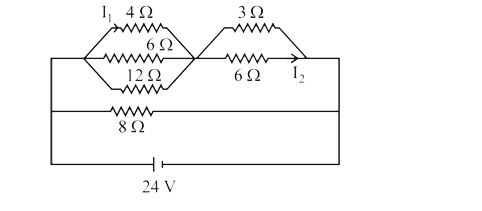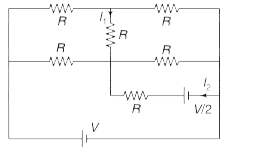In the circuit shown if fig, the rms currents (I1),(I2) and(I3) are altered by varying the frequency f of the oscillator. The output voltage of the oscillator remains sinusoidal and has a fixed amplitude.
When curves in figure correctly indicate the variation with frequency of the currents (I1),(I2),and(I3).
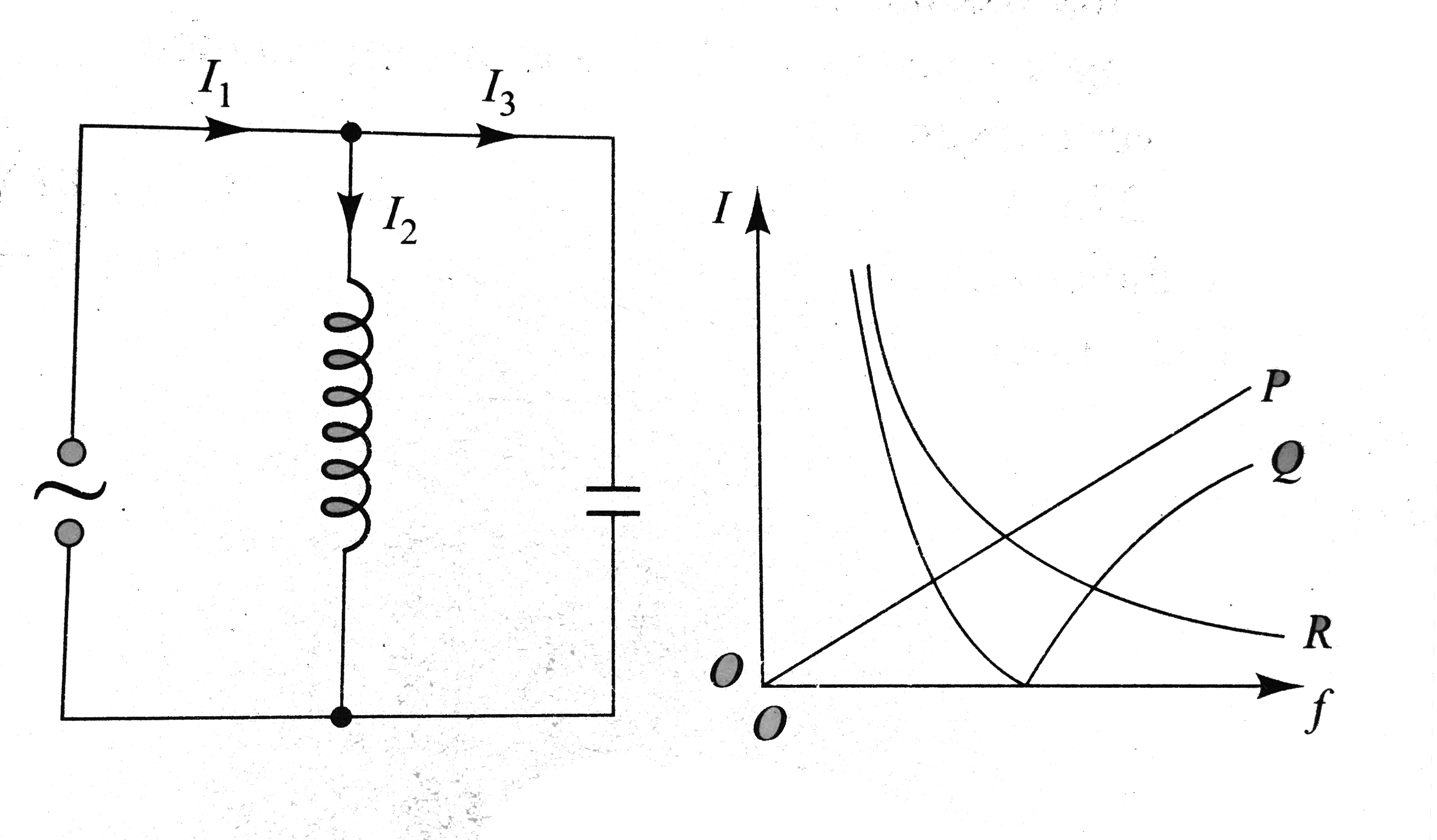
A
I1I2I3qqq
B
I1I2I3rqq
C
I1I2I3qpr
D
I1I2I3qrp
Video Solution
Text Solution
The correct Answer is:D
Resistance of inductor O is given by XL=2πfL
∴ r.m.s current through the inductor L is I2
=V2πfL∝1f
where V is the r.m.s. of the supply voltage.
Reactance of the capacitor C is given by Xc=12πfc
∴ r.m.s. current through the capacitor is
I3=VXc=2πfCV∝f.
The total current I1 is given by I1,=I2+I2
=(V2πfL−2πfCV).
Thus, I2 is given by represented by curve R.
I3 is best represented by curve P.
I1 is best represented buy curve Q.
|
Topper's Solved these Questions
- ALTERNATING CURRENTBOOK - A2ZCHAPTER - ALTERNATING CURRENTEXERCISE - Section B - Assertion Reasoning
26 Videos
- ALTERNATING CURRENTBOOK - A2ZCHAPTER - ALTERNATING CURRENTEXERCISE - AIPMT/NEET Questions
31 Videos
- ALTERNATING CURRENTBOOK - A2ZCHAPTER - ALTERNATING CURRENTEXERCISE - Power In Ac Circuits
21 Videos
- ATOMIC PHYSICSBOOK - A2ZCHAPTER - ATOMIC PHYSICSEXERCISE - Section D - Chapter End Test
30 Videos
Similar Questions
Knowledge Check
In the circuit shown if fig, the rims currents (I1),(I2) and(I3) are altered by varying the freqency f of the oscillator. The output voltage of the oscillatro remains sinusoidal and has a fixed amplitude.
When curves in figure correctly indicate the variation with frequency of the currents (I1),(I2),and(I3).
 A(A)(I1)=Q, (I2)=Q, (I3)=QB(B)(I1)=R, (I2)=Q, (I3)=QC(C) (I1)=Q, (I2)=P, (I3)=RD(D)(I1)=Q, (I2)=R, (I3)=P
A(A)(I1)=Q, (I2)=Q, (I3)=QB(B)(I1)=R, (I2)=Q, (I3)=QC(C) (I1)=Q, (I2)=P, (I3)=RD(D)(I1)=Q, (I2)=R, (I3)=PIn the circuit shown, the value of currents I1,I2andI3 are
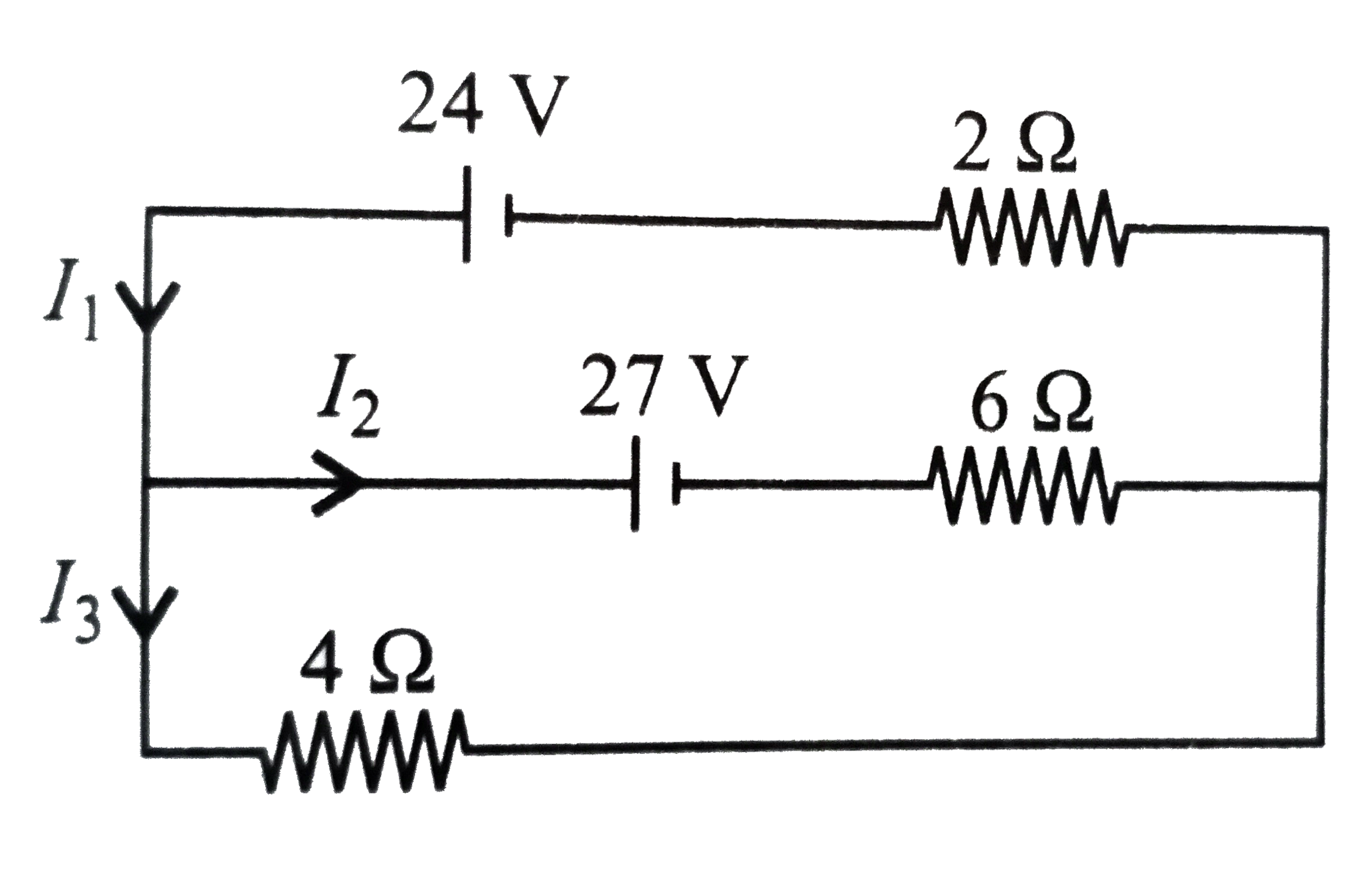 A3A,−3A2A,92AB92A,−32AC5A,4A,−3AD7A,54A,92A
A3A,−3A2A,92AB92A,−32AC5A,4A,−3AD7A,54A,92AIn the circuit shown, the currents i1 and i2 are
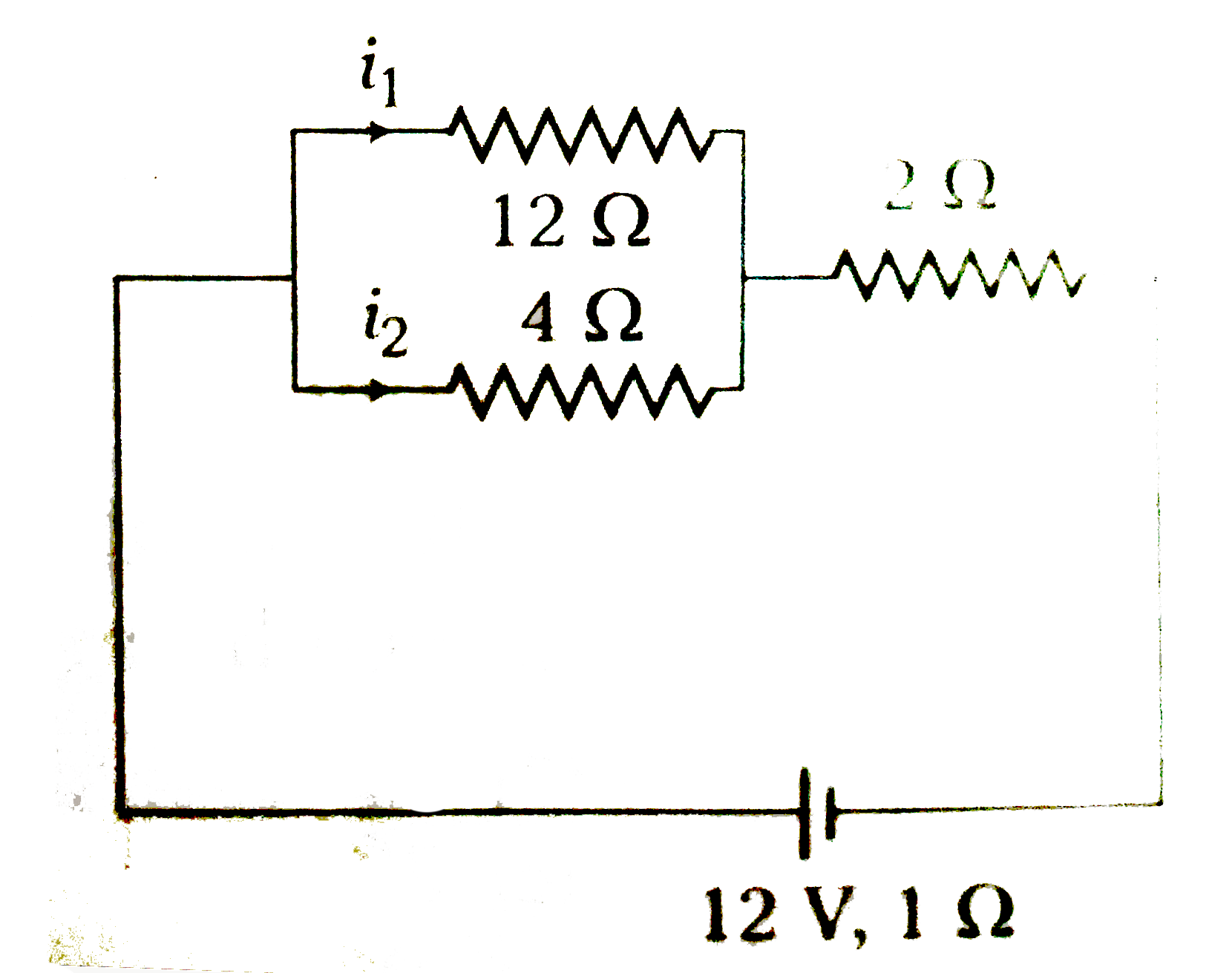 Ai1=1.5A,i2=0.5ABi1=0.5A,i2=1.5ACi1=1A.i2=3ADi1=3A,i2=1A
Ai1=1.5A,i2=0.5ABi1=0.5A,i2=1.5ACi1=1A.i2=3ADi1=3A,i2=1A
In the circuit shown in figure ,find the ratio of currents i1/i2.
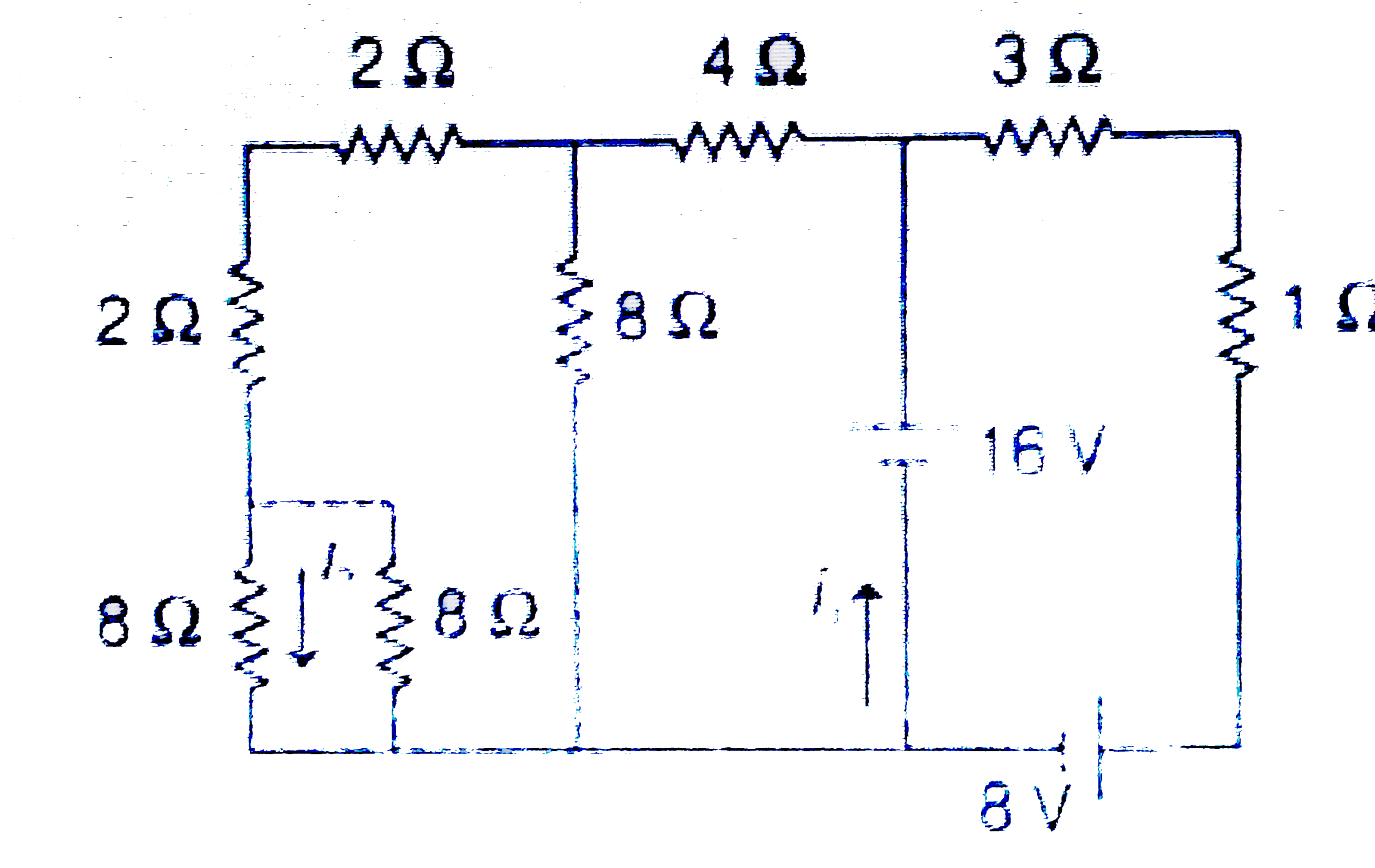
View SolutionIn the circuit as shown in figure, the ratio of current i1/i2 is
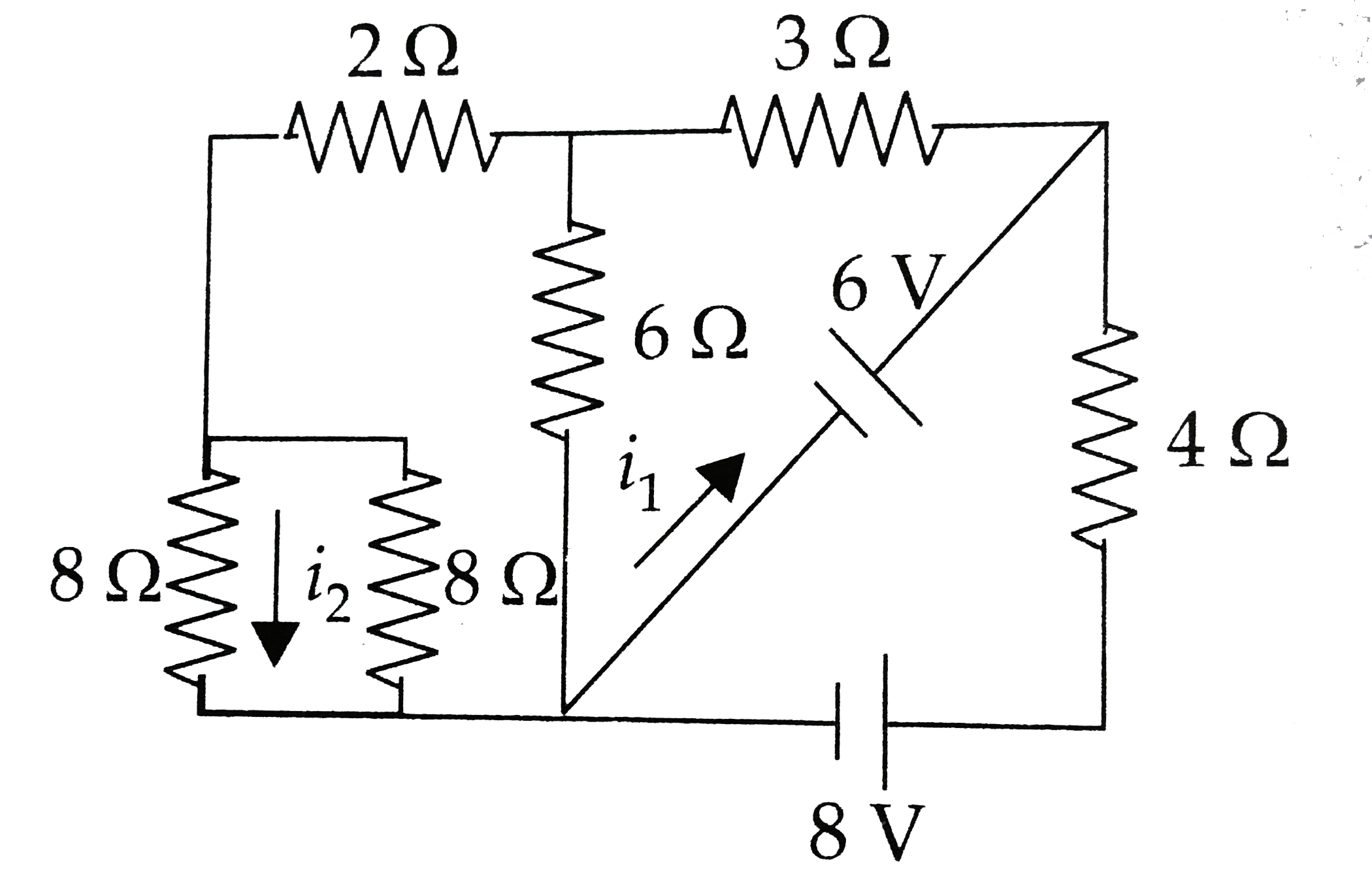
View SolutionIn the circuit shown, the switch is closed at t=0, the currents I1,I2 and I3 are
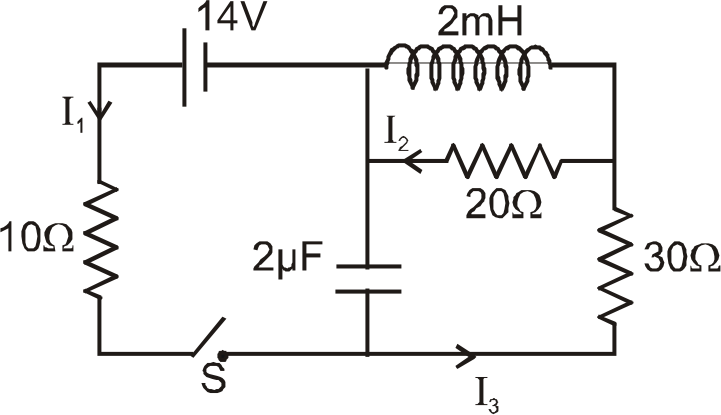
View SolutionFor the circuit shown in the figure, the current I will be
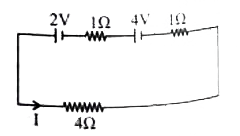
View SolutionFor the circuit shown in the figure current I will be
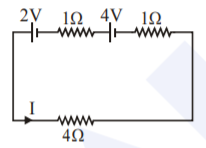
View Solution

